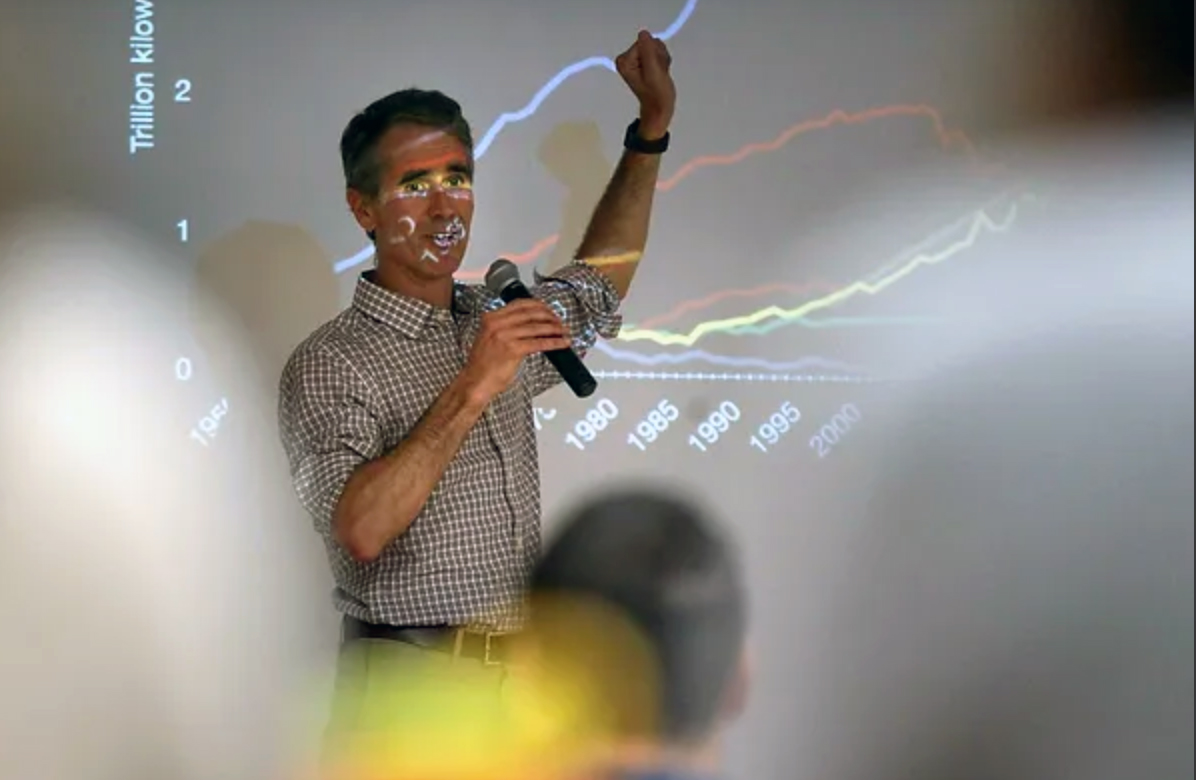
Historian, teacher and U.S. environmental politics and policy author Dr. Jay Turner has been selected to receive Texas A&M University’s 24th annual Susanne M. Glasscock Humanities Book Prize for Outstanding Interdisciplinary Scholarship for his 2022 book, “Charged: A History of Batteries and Lessons for a Clean Energy Future.”
Established in 1999 as a gift from Texas A&M graduate Melbern G. Glasscock ’59 to his wife, Susanne M. Glasscock, the Glasscock Book Prize is presented each year by the Melbern G. Glasscock Center for Humanities Research in recognition of outstanding scholarship in the humanities with broad appeal to both academic and nonacademic audiences.
Turner, whose award-winning work was chosen from among six books comprising this year’s Glasscock Humanities Book Prize committees’ shortlist, will visit the Texas A&M campus next month to deliver a Nov. 29 public lecture in the Memorial Student Center. The prize, which consists of a cash award, includes the opportunity to meet with various student and faculty groups. The Glasscock Center also will hold multiple events throughout the academic year to showcase and celebrate Turner’s work.
“It’s incredibly beneficial for the university to be associated with this great prize,” said Dr. Troy Bickham, a professor in the Department of History and interim director of the Glasscock Center. “We bring world-class humanity scholars like Jay Turner to campus. He will spend several days here meeting with students and faculty, culminating in a special public lecture.”

As a professor of environmental studies at Wellesley College, Turner has authored two previous books — "The Promise of Wilderness: American Environmental Politics since 1964,” which focuses on debates over public lands protection in the U.S., and “The Republican Reversal: Conservatives and the Environment from Nixon to Trump,” which details the evolution of conservative opposition to environmental reform, culminating with the Trump administration. His current book, “Charged,” unpacks the history of batteries and why they are critical to a clean energy transition. The work, which also was announced last week as one of three finalists for the Cundill History Prize, stems from his courses on environmental policy, climate change and the future of energy, along with his own sustainability initiatives at home, in his community and at Wellesley College.
Bringing authors like Turner and those of his caliber as previous Glasscock Book Prize recipients to Aggieland is a great way to show them what the university stands for, Bickham said.
“As far as I know, all of the authors have enjoyed their time on campus — they certainly walk away saying very nice things about it,” Bickham said. “It’s great advertising for the university and the prize, and it’s all around a great showcase of what we’re doing here in the humanities.”

Turner earned his Ph.D. in history from Princeton University and completed a certificate in Science, Technology and Environmental Policy at the Princeton School of Public and International Affairs. He has received funding from the National Science Foundation and the National Endowment for the Humanities to support his research, centered primarily in the areas of environmental history and environmental studies. He enjoys giving lectures and leading discussions related to climate change, climate action and prospects for a clean-energy transition.
Each year, Bickham says a large number of entries are submitted for consideration for the Glasscock Book Prize. In addition to self-nominations, publishers from all across the world are invited to nominate up to two books that adhere to the guidelines listed on the prize’s website. Submitted books must include original interdisciplinary research and appeal to audiences outside of the academic realm.
“It pushes authors out of their comfort zone, because they have to write for a different audience,” Bickham said. “The prize highlights books that are successful in doing that, and it elevates everyone else’s game.”
Once publishers send in submissions, the books go through various selection committees, being swapped around throughout the summer as the shortlist of finalists is created.
Because of its unique guidelines, the book prize garners international attention, Bickham said. This year, its popularity increased even more due to the historically high cash prize of $10,000, resulting in an entry pool so large that, for the first time in the Glasscock Book Prize’s history, the committees asked school teachers to join their efforts.
“We reached out to the local high schools and local school districts, and we identified a number of school teachers who were teaching humanities,” Bickham said. “We asked them to serve as judges on our boards.”
For 2023, each shortlisting committee included a teacher, a graduate student and a faculty member — a wide variety of expertise and perspectives to offer in search of this year's winning author.
Beyond Turner’s winning entry, the 2023 shortlist of finalists included works that cover a variety of topics, such as racial injustice, fitness, court satire and colonialism.
“It’s a huge range,” Bickham said. “One of the nice things about making the finalist shortlist is that it allows people to see the depth and diversity of humanities scholarship. We had six really great books that represent a wide range of fields.”
For more information on this year’s Glasscock Book Prize recipient or additional books selected for the shortlist, please visit tx.ag/GCbookprize.
